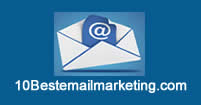Email marketing has become an integral part of any successful digital marketing strategy. With its ability to reach a wide audience and generate leads, it has proven to be one of the most effective marketing tools available. In this article, we will explore why email marketing is so effective and how businesses can leverage its power to drive results.
The Power of Email Marketing
Email marketing offers several distinct advantages over other forms of marketing. One of the key benefits is its cost-effectiveness. Compared to traditional forms of advertising, such as print or television, email marketing is significantly more affordable. This makes it an attractive option for businesses of all sizes, including startups and small businesses with limited marketing budgets.
Another major advantage of email marketing is its ability to target specific audiences. With advanced segmentation and personalization tools, businesses can send tailored messages to different groups of subscribers based on their demographics, interests, and behavior. This level of customization helps to ensure that the right message is reaching the right person at the right time, increasing the chances of engagement and conversion.
Building Relationships and Trust
Email marketing also excels at building relationships and trust with customers. By delivering valuable and relevant content directly to their inboxes, businesses can nurture leads and stay top-of-mind with their audience. Whether it's informative blog posts, exclusive promotions, or helpful tips, email allows businesses to provide ongoing value to their subscribers, positioning themselves as trusted authorities in their respective industries.
Furthermore, email marketing allows for two-way communication. Subscribers can easily reply to emails, providing businesses with valuable feedback, insights, and even opportunities for personalized follow-ups. This interaction not only strengthens relationships but also allows businesses to better understand their customers' needs and preferences.
Measuring Success with Email Marketing
One of the strengths of email marketing is its measurability. Unlike traditional marketing methods that may rely on estimates and projections, email marketing provides businesses with accurate and actionable data. By tracking metrics such as open rates, click-through rates, and conversions, businesses can understand the performance of their campaigns and make data-driven decisions to improve results.
Additionally, A/B testing allows businesses to experiment with different elements of their emails, such as subject lines, calls to action, and design, to optimize engagement and conversion rates. This iterative approach allows businesses to continually refine their email marketing strategies and achieve better results over time.
Best Practices for Effective Email Marketing
To make the most of email marketing, businesses should follow some best practices:
- Build a Quality Email List: Focus on growing an engaged and targeted subscriber base. Offering incentives, such as exclusive content or discounts, can encourage visitors to sign up for your emails.
- Segment Your Audience: Divide your subscribers into different groups based on their attributes and actions. This allows for more personalized and targeted messaging, resulting in higher engagement and conversion rates.
- Craft Compelling and Relevant Content: Create high-quality content that is valuable and relevant to your audience. This could include blog posts, industry news, product updates, or exclusive offers. Aim to provide consistent value to keep your subscribers engaged.
- Optimize for Mobile: With the majority of emails being opened on mobile devices, it is crucial to ensure that your emails are mobile-friendly. Use responsive design and test your emails on various devices and email clients to guarantee a seamless experience for all subscribers.
- Track and Analyze Results: Regularly monitor and analyze the performance of your email campaigns. Identify trends, areas for improvement, and opportunities to optimize. Use this data to iterate and refine your email marketing strategy.
Conclusion
In conclusion, email marketing remains an incredibly effective tool for businesses looking to reach their target audience, build relationships, and drive results. Its ability to deliver personalized, relevant content directly to subscribers' inboxes, coupled with its cost-effectiveness and measurability, makes it a valuable asset for any marketer. By following best practices and continually refining strategies based on data-driven insights, businesses can leverage the power of email marketing to maximize their digital marketing efforts
